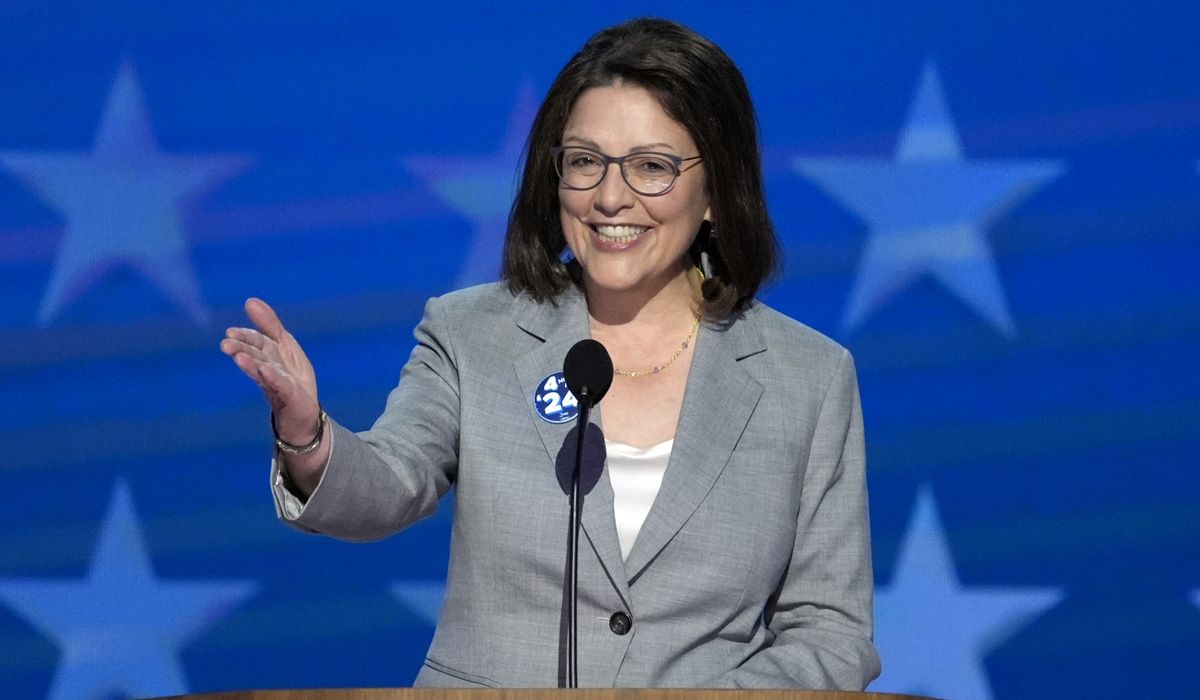ARTICLE AD BOX
Democrats warn that if Republicans cut Medicaid funding, particularly from the expansion population as the GOP has suggested is a target, it could reduce funding for opioid addiction treatment.
A report from the Joint Economic Committee Democrats, led by New Hampshire Sen. Maggie Hassan, found that roughly 1 million people receive medication treatment for “opioid use disorder” through Medicaid.
More than 60% of those individuals accessing that treatment are part of the Medicaid expansion population.
“With the plan that we’re seeing from congressional Republicans and President Trump to end Medicaid as we know it — all in order to pay for more tax giveaways for billionaires — the president is set to surrender one of our best tools in the fight against fentanyl,” Ms. Hassan said.
She said if Republicans cut Medicaid that would contradict one of the president’s drug policy priorities, to increase access to medication-assisted opioid treatment.
The White House did not immediately respond to a request for comment.
The 2022 data the committee analyzed for its report did not include figures for New York or Illinois, so the 1 million people who received treatment is likely an underestimate.
The states that reported the highest number of Medicaid beneficiaries receiving medication opioid treatment were Pennsylvania with 84,445, Ohio with 82,079, California with 76,153 and Kentucky with 60,771.
Mr. Trump won Pennsylvania, Ohio and Kentucky in the 2024 election. Five of the six senators who represent those states are Republicans.
Opioid treatment medications covered under Medicaid, like methadone, buprenorphine, and naltrexone, provide patients with relief from withdrawal symptoms and allow the body to function normally to help patients stay in recovery.
Ms. Hassan said the Medicaid expansion in her state has helped people with chronic health conditions who were too sick to work to get the treatment they needed to return to the workforce.
The report cites a recent study from the New England Public Policy Center that found Medicaid enrollees who received buprenorphine were more likely to become employed, had shorter job searches and earned more than those not receiving treatment.
It also cited research showing that outpatient prescriptions for medications to treat substance use disorder increased more rapidly in states that expanded Medicaid.
Medicaid, a government program initially designed to provide health care for people with disabilities, pregnant women and low-income parents with minor children, was expanded under the Affordable Care Act to cover most adults with incomes up to 138% of the poverty level.
States had to opt into the expansion, and 40 states, plus the District of Columbia, did so.
Republicans are looking to find savings from Medicaid to help achieve at least $1.5 trillion in spending cuts for the party-line budget reconciliation bill carrying the bulk of Mr. Trump’s legislative agenda.
While the GOP has not made any decisions, one idea under discussion is reducing the 90% federal medical assistance percentage rate offered to states that opted to expand Medicaid.
“If there are even small cuts to the federal share of Medicaid funding, many states across the country, including New Hampshire, have laws on the books that would automatically terminate Medicaid expansion and kick people off of their health care, including for addiction treatment,” Ms. Hassan said.
New Hampshire is one of eight states that have laws that would automatically terminate Medicaid expansion if the federal funding share drops below 90%. The others are Arkansas, Illinois, Indiana, Montana, North Carolina, Utah, and Virginia. Arizona has a law that would do the same if the federal share falls below 80%.
The report estimates that for seven of those nine states (data for Illinois and North Carolina was unavailable) around 95,000 people receiving opioid treatment medications would lose access if Republicans cut the share of federal funding.
“Overdose deaths dropped by roughly 25% nationally between 2023 and 2024,” Ms. Hassan said. “But by cutting Medicaid, Trump and congressional Republicans could interrupt this progress, throwing hundreds of thousands of Americans off of the road to recovery and possibly back into the spirals of addiction.”

 3 months ago
64
3 months ago
64








 English (US) ·
English (US) ·